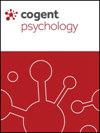UK Psychology PhD researchers’ knowledge, perceptions, and experiences of open science
IF 1.6
Q2 PSYCHOLOGY, MULTIDISCIPLINARY
引用次数: 0
Abstract
Abstract To advance the goals and values of open science, it is vital that the next generation of researchers, i.e. PhD researchers, is supported in adopting open science practices. However, to date, there is no comprehensive understanding of psychology PhD researchers’ knowledge, perceptions, and experiences with open science in a UK context. The present study used a pre-registered mixed methods design to fill this gap in the literature, by surveying psychology PhD students in the UK (n = 196) on their experiences with open science, perceptions of open science, and knowledge of open science tools and practices. Our findings demonstrate that while attitudes towards questionable research practices were consistently high, knowledge and perceptions of open science tools and practices varied considerably across PhD researchers. In particular, supervisory support and guidance with open science practices was mixed across participants. Perceived benefits of engaging with open science included benefits to employability, signalling researcher credibility, sharing learning and resources, building collaboration and relationships, and wider dissemination of PhD researchers’ work. Perceived barriers included lack of time, financial reasons, fear of scooping, fear of judgement or criticism, and incompatibility with research paradigms (e.g. qualitative research). Implications for policy, including British Psychological Society training and support, are discussed.英国心理学博士研究人员对开放科学的知识、看法和经验
本文章由计算机程序翻译,如有差异,请以英文原文为准。
求助全文
约1分钟内获得全文
求助全文
来源期刊

Cogent Psychology
PSYCHOLOGY, MULTIDISCIPLINARY-
CiteScore
2.90
自引率
0.00%
发文量
75
审稿时长
12 weeks
期刊介绍:
One of the largest multidisciplinary open access journals serving the psychology community, Cogent Psychology provides a home for scientifically sound peer-reviewed research. Part of Taylor & Francis / Routledge, the journal provides authors with fast peer review and publication and, through open access publishing, endeavours to help authors share their knowledge with the world. Cogent Psychology particularly encourages interdisciplinary studies and also accepts replication studies and negative results. Cogent Psychology covers a broad range of topics and welcomes submissions in all areas of psychology, ranging from social psychology to neuroscience, and everything in between. Led by Editor-in-Chief Professor Peter Walla of Webster Private University, Austria, and supported by an expert editorial team from institutions across the globe, Cogent Psychology provides our authors with comprehensive and quality peer review. Rather than accepting manuscripts based on their level of importance or impact, editors assess manuscripts objectively, accepting valid, scientific research with sound rigorous methodology. Article-level metrics let the research speak for itself.
 求助内容:
求助内容: 应助结果提醒方式:
应助结果提醒方式:


